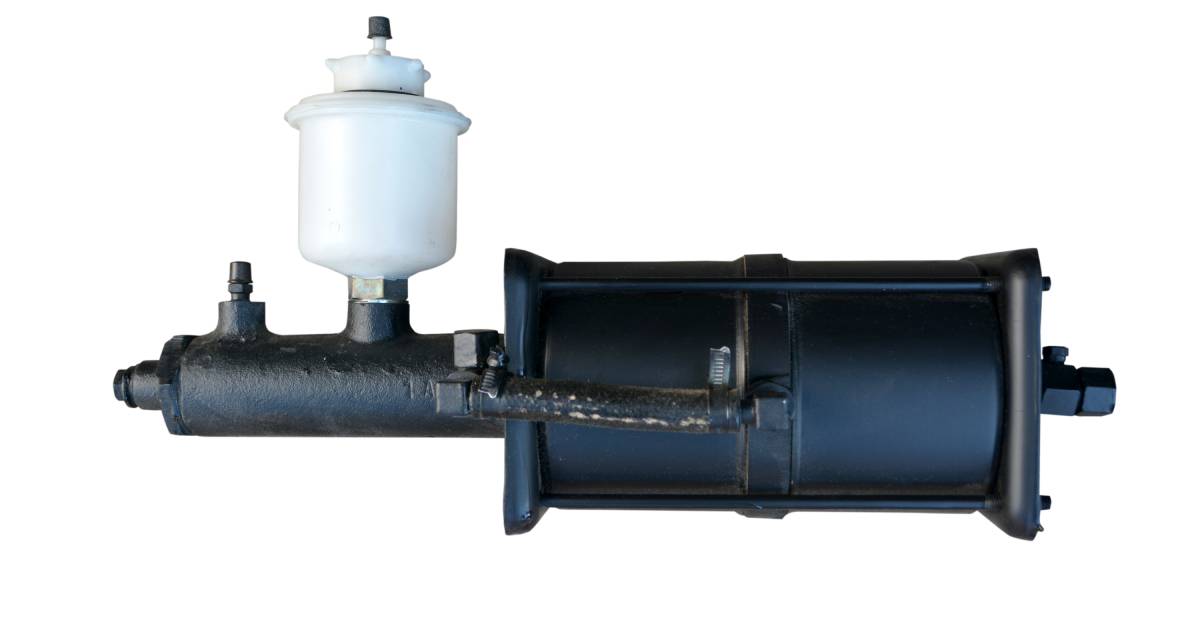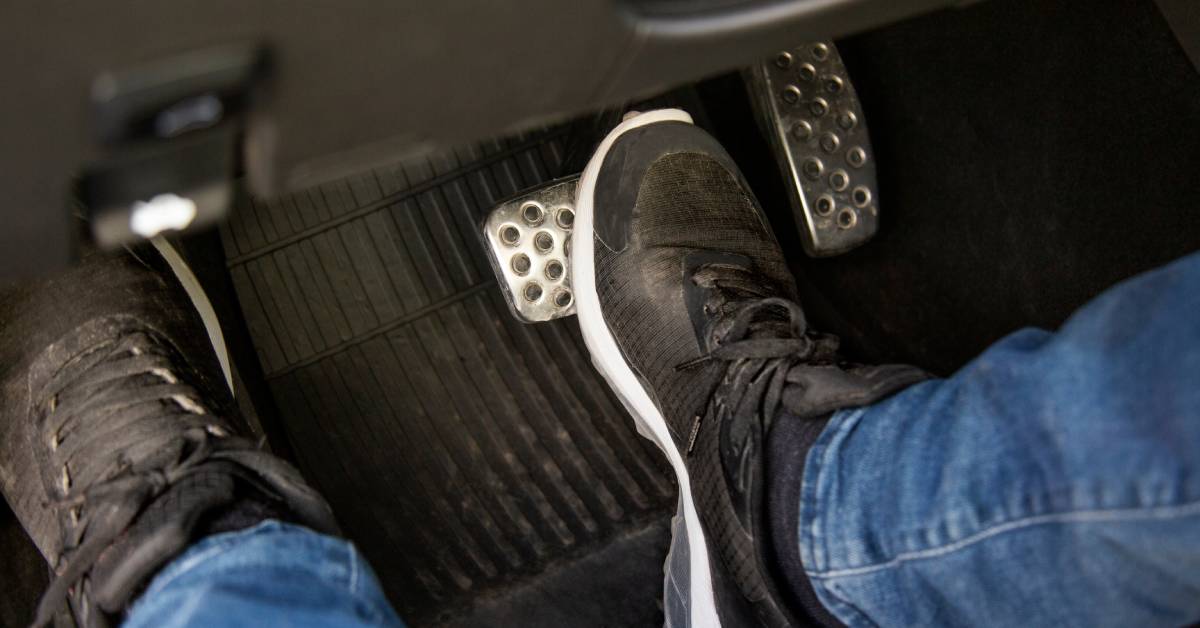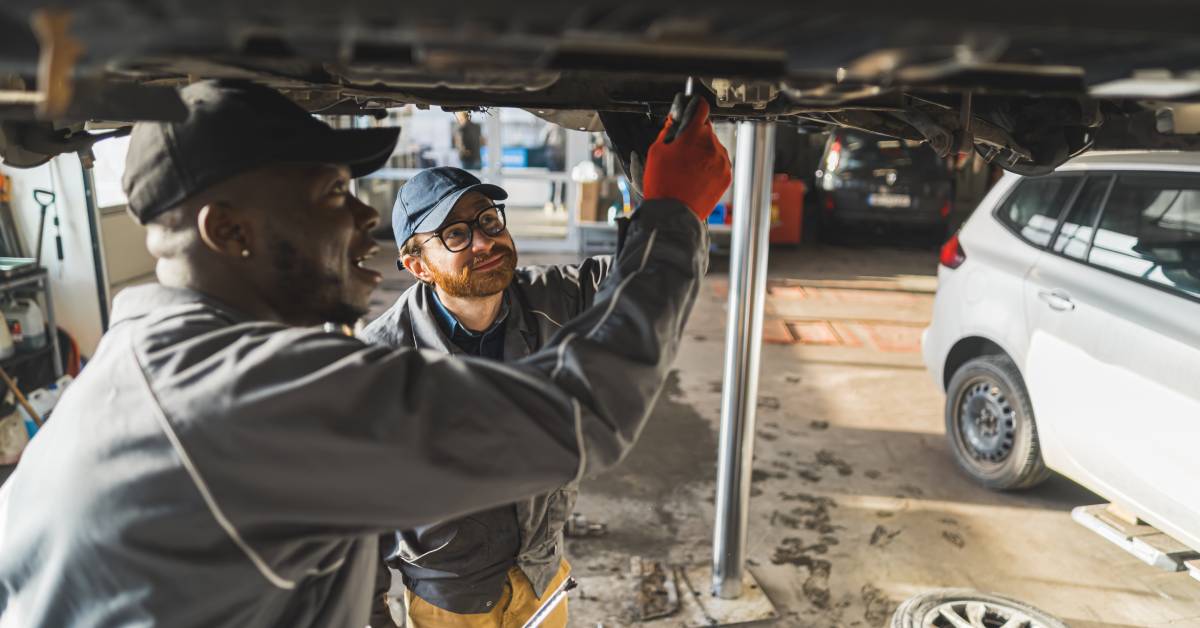What You Need To Know About a Failing Clutch Master Cylinder

One of the most crucial components of a hydraulic clutch is the clutch master cylinder. This small yet vital part of your car’s hydraulic system can significantly affect driving performance when it begins to fail.
The last thing a driver wants is for their car’s master cylinder to degrade and fail, so they must be proactive to avoid it. We’ll explain what you need to know about a failing clutch master cylinder, including signs of problems, repair and replacement options, and more.
The Clutch Master Cylinder’s Role
The clutch master cylinder generates hydraulic pressure to engage and disengage the clutch, allowing for smooth gear changes.
When engaging the clutch pedal, the master cylinder converts this mechanical action into hydraulic pressure, which goes through the clutch lines to the slave cylinder. Then, the slave cylinder operates the clutch fork and enables gear shifts.
How Important Is the Clutch Master Cylinder?
Understanding the role of the clutch master cylinder is vital for any car owner. A worn clutch master cylinder can compromise your ability to shift gears and lead to potentially dangerous driving conditions. Recognizing the symptoms of a broken clutch master cylinder sooner rather than later can save you a lot of frustration and money while preventing accidents.
Signs of a Failing Clutch Master Cylinder
A key thing you need to know about a failing clutch master cylinder is how it can manifest in a vehicle. If there are problems with your car’s clutch master cylinder, you’ll likely notice it as one of the following problems.
Difficulty Changing Gears
Perhaps the most common sign of a worn clutch master cylinder is difficulty changing gears. This issue can manifest as stiff or grinding gear shifts, making it challenging to transition smoothly from one gear to another. If you notice these symptoms with your vehicle, it’s essential to have your clutch master cylinder inspected and repaired immediately to prevent further damage and ensure your safety on the road.

Clutch Pedal Issues
A failing master cylinder could also manifest problems in the clutch pedal. You may notice that the pedal feels spongy or soft when pressed, it takes longer to engage and disengage the clutch, or it doesn’t fully disengage.
These issues make it difficult to control the vehicle, resulting in jerky movements or difficulty shifting gears. In severe cases, this could lead to the inability to drive the car safely. Drivers should address these issues promptly to avoid further damage and get back to safe driving.
Low Clutch Fluid Levels
The clutch master cylinder requires hydraulic fluid to facilitate gear changes. If you notice low levels of clutch fluid in your vehicle, it could be a sign that there is a leak or an issue with the master cylinder.
In addition to low fluid levels, you may notice a puddle of fluid under your car, which is a clear indication of a leak and a potential problem with the clutch master cylinder. Ignoring these signs can lead to more severe damage and costly repairs, so address any issues with the clutch master cylinder promptly.
Grinding and Other Noises When Engaging the Pedal
A failing clutch master cylinder can cause grinding or other unusual noises when engaging the clutch pedal. You may hear this noise when pressing or releasing the pedal, and it could indicate internal damage or wear on the master cylinder.
Over time, this damage can lead to further issues, such as difficulty shifting gears or even a complete inability to engage the clutch. If left unaddressed, these problems can degrade the performance and safety of the vehicle. Inspect the clutch and master cylinder immediately if you hear grinding when shifting.
DIY Test for a Failing Clutch Master Cylinder
Conducting a simple DIY test can help you diagnose a failing clutch master cylinder in the comfort of your garage.
Step 1: Do a Visual Inspection
Start by inspecting the clutch master cylinder and its surrounding components. Look for leaks, particularly around the seals and fittings. If the area is damp or oily, it might indicate a leak.
Step 2: Check the Clutch Fluid Reservoir
Ensure the fluid in the reservoir is within the recommended range and that the fluid is clean. Contaminated or dark fluid may point to internal wear.
Step 3: Work the Pedal
Press the clutch pedal several times and observe how it feels. It should offer consistent resistance throughout its travel. If the pedal feels spongy or drops to the floor without resistance, it’s a strong indicator that the master cylinder is failing.
Step 4: Shift Gears
Finally, attempt to shift gears while the car is stationary. Difficulty engaging gears or grinding sounds when trying to shift warrant a closer look at your clutch master cylinder.

Maintenance for Your Clutch Master Cylinder
Proactive maintenance is essential for extending the lifespan of your clutch master cylinder. First, routinely check and maintain the clutch fluid levels, ensuring they are always within the recommended range. Second, use the correct type of hydraulic fluid for your vehicle to avoid contamination.
Smooth and gentle shifting can reduce strain on the clutch system and prolong the life of the master cylinder. Lastly, periodic professional inspections can help to identify and address minor issues before they worsen, ensuring your clutch master cylinder remains in top working condition.
Repair vs. Replacement for a Failing Clutch Master Cylinder
If you or your mechanic find a problem with your clutch master cylinder, you’ll need to determine whether it’s a repair or replacement job. You may have the skills to fix minor issues, such as small leaks or slightly worn seals, by replacing the seals or refitting the cylinder. These repairs can be cost-effective and extend the life of the existing master cylinder.
However, replacement becomes the more prudent option for significant problems, like corrosion of the cylinder or damage to the inner bore. Attempting to repair a severely compromised master cylinder yourself may only offer a temporary solution and could result in further complications down the line. It’s better to replace the clutch master cylinder and potentially other corroded and failing parts with a hydraulic clutch kit.
Replace Your Failing Clutch Master Cylinder With Clutch Masters Industries
We hope our guide has shed some light on what to do when problems arise with the clutch master cylinder. If your clutch master cylinder is beyond repair, Clutch Masters Industries is here to help with our wide selection of hydraulic clutch components and kits.
Browse our website to find the parts you need for your vehicle, or contact our staff to speak with a clutch expert. We’ll get your car back in shape in no time!


